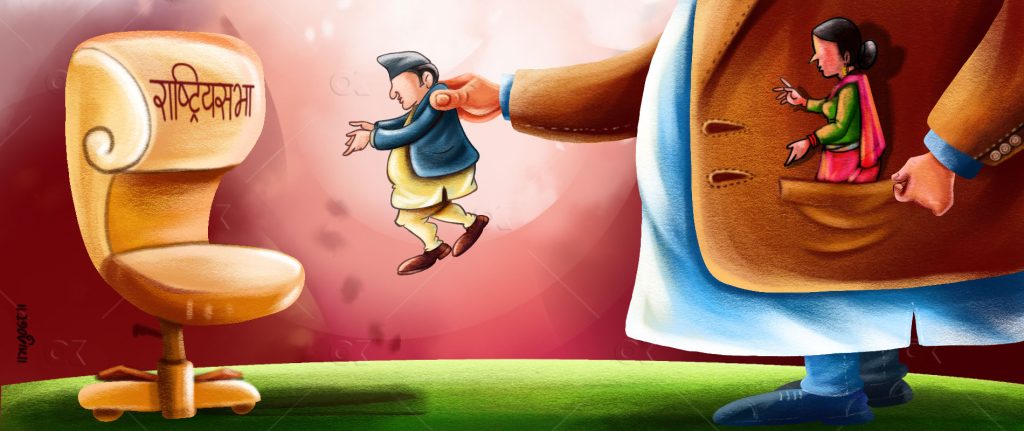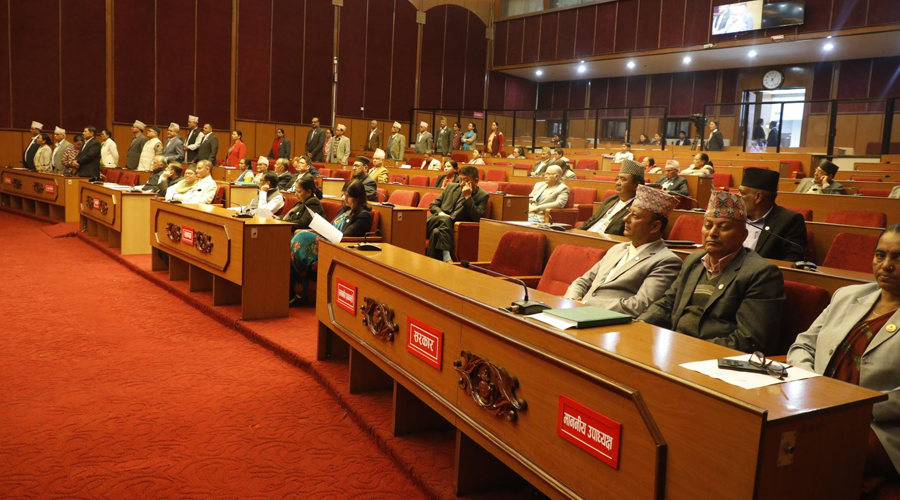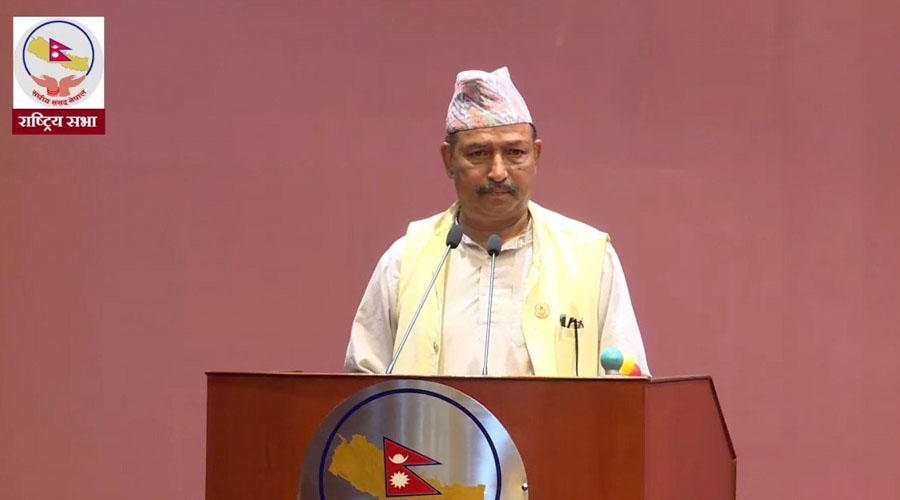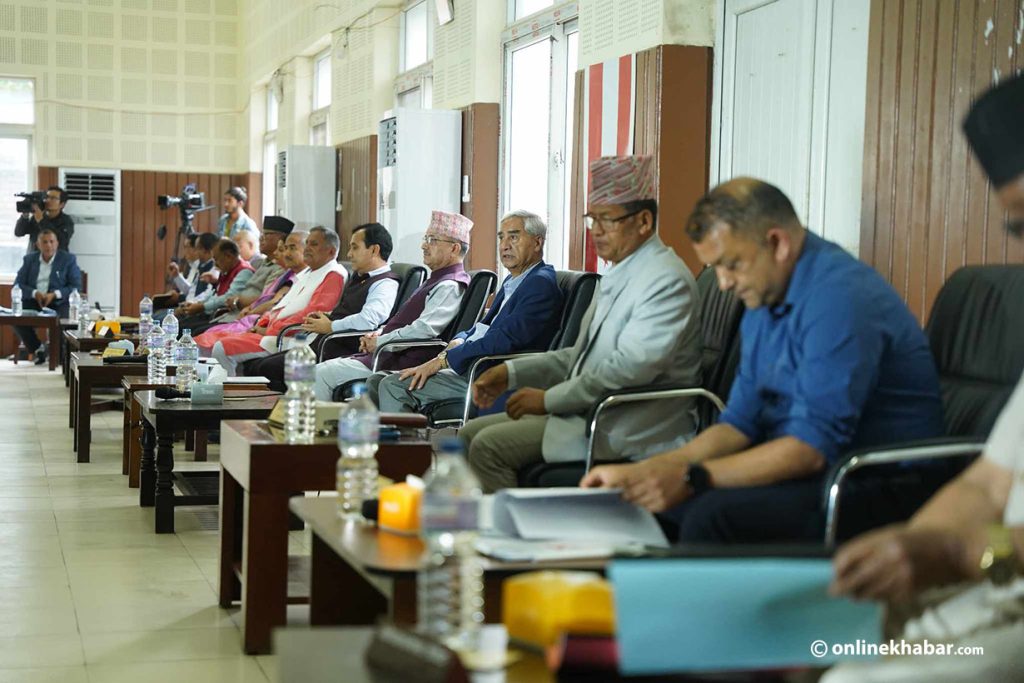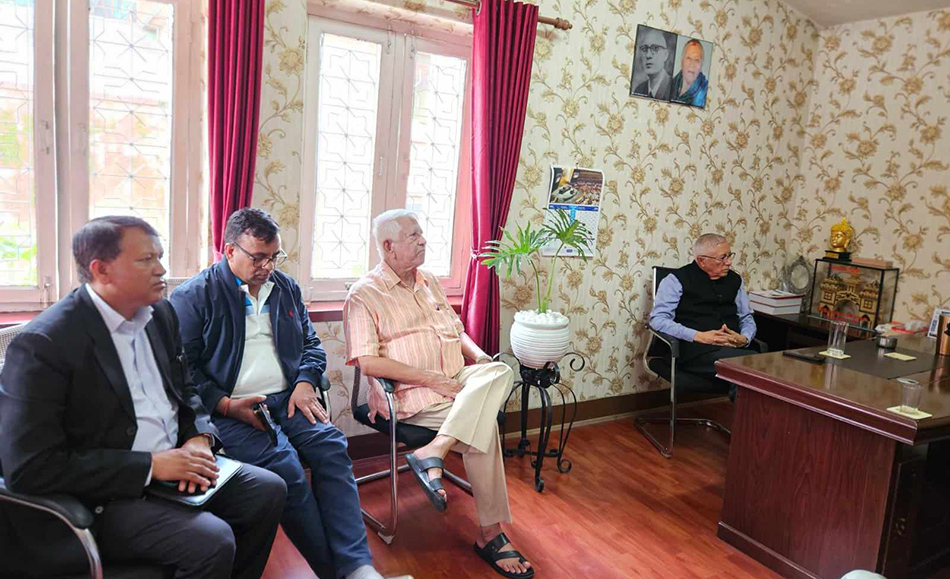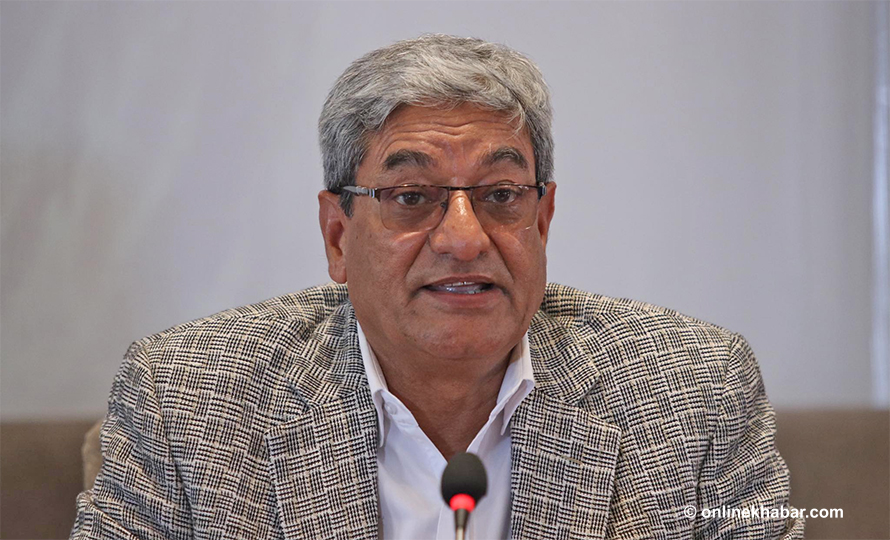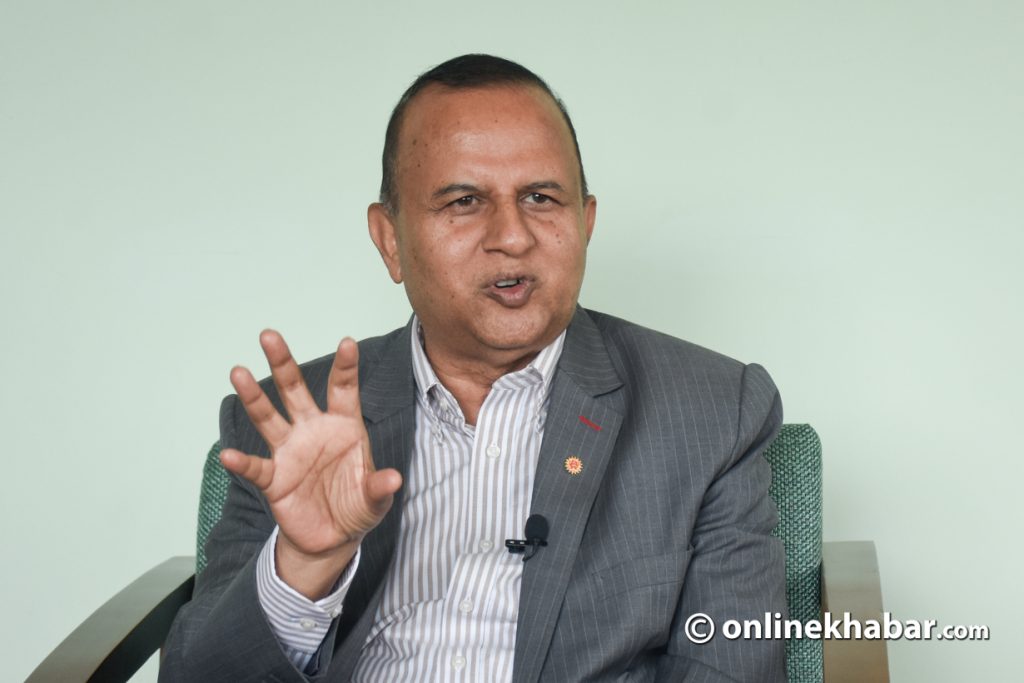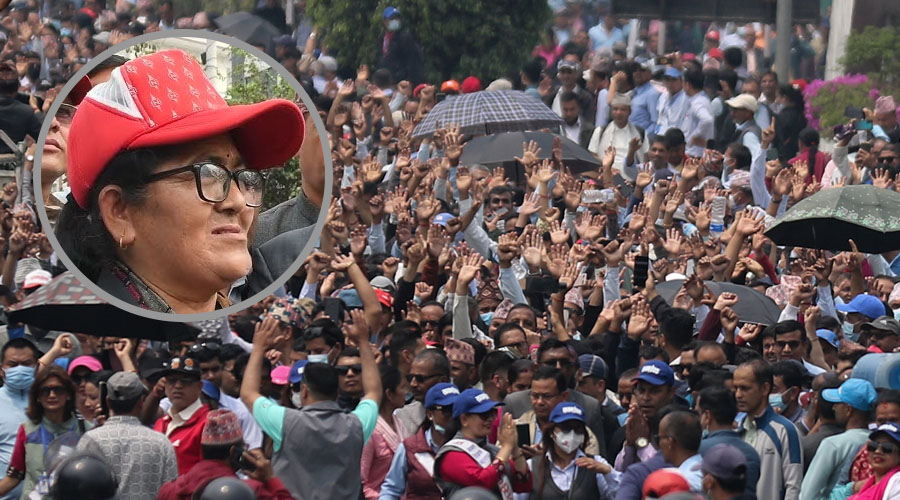In countries that follow the Westminster model, the upper house of the parliament holds a lot of importance. It is a place that gives space to people with experience. In countries like the United Kingdom and India, the upper house members are experts in various fields. These people are more than just politicians; they are prominent people who have given a lot to the country during their lifetime. But in Nepal, the case is different with the National Assembly, the upper house of the bicameral parliament failing to do that role.
Mohamad Khalid Siddiqui was elected a member of the National Assembly on January 26. He did not get elected due to his work in the field of politics but because he had a good relationship with Janata Samajbadi Party chair Upendra Yadav.
He has been active in politics for quite some time and has been part of almost all the protests taking place in Madhes. During this time, he got close to Yadav and since 2003 has not left his side. To reward him, Yadav, time and again has been recommending his name for proportional representation seats of the House of Representatives, but Siddiqui was yet to win. Nonetheless, this year, as the coalition had a stronghold in provincial parliaments and local units that would elect National Assembly members, Siqqudi’s luck turned around as he got a seat.
This is a recurring issue in Nepal’s politics where people, based on their connections, land positions in the National Assembly. The record is so poor that there have been people who are questioning the existence of the upper house.
Get close to leaders to get a seat
In the past three years, National Assembly members were elected without adhering to the constitution. The people elected to the National Assembly are those who are close to powerful politicians of the country and those who have time and again lost direct elections.
According to the constitution, the upper house should have 59 members. To ensure equal representation, each province has to elect eight members each with three being appointed by the president. The vision was to have people from different fields and skills there. But, the vision has not been followed as these appointments are mostly political.

Cases like Siddiqui are plenty in Nepal. Udaya Bahadur Bohara recently became a part of the National Assembly from Karnali. But, Bohara has never been a successful politician ever in his life. He has lost the parliamentary elections twice and his former party (CPN-UML)’s general convention once. Despite this, he keeps getting chance after chance due to his close connection with Madhav Kumar Nepal, the chairman of CPN-Unified Socialist.
That is how Krishna Prasad Paudel also got into the National Assembly. He used his connections with prime minister Sher Bahadur Deuba to get into the upper house.
Gopal Kumar Basnet is also a close aide of Deuba and got into the National Assembly are winning his seat via a lottery after votes were tied in Province 1.
Kamala Panta got into the upper house after losing the post of deputy general secretary in the Nepali Congress central committee. To ensure this would not affect the party negatively, Nepali Congress made sure that she got into the National Assembly.
These people have the expertise to be elected in the house. But sadly, none of them is elected because of their work. The reason they were nominated and subsequently got elected was the connection with powerful people. This, experts claim, sets bad precedence which in the future will discourage people.
The losers’ house

The past four years of the National Assembly paint a bad picture. The people who were elected have been found ditching the constitution, law and morality.
After losing in the general elections in 2017, Narayan Kaji Shrestha still got elected into the National Assembly in 2020. After he was elected, many people criticised him, and it resulted in him announcing that he would not take any salary from the position. But after a year, he has availed all the services that are given to him.
Another senior leader who lost the general elections but got himself into the upper house is Bamdev Gautam who was appointed by the president.
Soon after Gautam’s appointment, writ petitions were registered at the Supreme Court against Gautam claiming that someone who had lost the general elections should be allowed to be in the upper house in the same term as it would send a bad message to the people. The court is yet to give its verdict.
It is not just the general elections; people who have lost the local elections are also getting into the upper house. Singh Bahadur Biswakarma, who had lost the local elections in April 2017, managed to get into the upper house thanks to the stronghold erstwhile Nepal Communist Party had in Sindhupalchok.
Bimala Ghimire and Bhagawati Neupane who both lost mayoral elections in Banganga and Bhanu municipalities respectively are also members of the upper house.
Senior advocate Dinesh Tripathi says that nominating people who had previously lost in the general elections shows how much control politicians have over the upper house. He says there should be a rule that makes these people ineligible from being part of the upper house.
“Nepal’s politics is centred around politicians not the constitution and that creates a divide,” says Tripathi. “These politicians have a selfish motive and that is why people who shouldn’t be eligible are being elected. I don’t see why Nepal even has a national assembly.”
Bad precedents from the past

As per the 1990 constitution, 10 National Assembly members were appointed by the king upon the government’s recommendation. During the time, Nepali Congress was in power. When suggesting names, the top leaders of the Nepali Congress–Krishna Prasad Bhattarai, Ganesh Man Singh and Girija Prasad Koirala–were not on the same page. All three wanted their people in the house, but the number of seats was not enough.
After this, Koirala, disregarding Bhattarai and Singh, gave the king the names of the people he wanted. Those names were endorsed by the king and that is how the upper house began in Nepal.
That started the trend of appointing people upper house members from the pocket. After Koirala, the king then himself appointed people from his pocket.
Despite the king being overthrown and republicanism being established in the country, this trend did not stop as people are being nominated for the National Assembly seats from the politician’s pockets.
Former general secretary of the Parliament Secretariat, Surya Kiran Gurung, says this is one of the main reasons why experienced and capable people have not been members of the upper house.
“When senior leaders do this, these people will be indebted to them. And, that is not good. It hurts the integrity of the upper house,” says Gurung.
He accuses the upper house members of working on behalf of the parties and not for the country as they spend most time bickering about the opposition parties rather than doing what they should be doing.
“I don’t understand why we need the upper house. These people aren’t experts and do nothing but defend party members. Apart from a few, everyone is in the pocket of someone. If we want it to work effectively, we need to stop this trend,” says Gurung.
Recently, the upper house is inactive due to problems in the lower house. But, experts say when that is happening, it is the upper house that should take lead and put things right. Instead, all the upper house talks about recently is the House of Representatives.
The weak constitution

The constitution has also not given the upper house much power. The decision taken by the upper house can easily be disregarded by the lower house. But on the contrary, the decision made by the lower house, in some way, has to be accepted by the upper house.
According to article 110 of the constitution, a bill may be introduced in any house of the parliament. But, the finance bill can only be introduced in the House of Representatives. After discussions at the lower house, the bill is taken to the upper house. Even if the upper house recommends suggestions, the lower house does not have to make changes to the bill.
Other bills can be introduced in both the upper and the lower houses. They have to be ratified by both the houses. While the lower can take time on its ratification, the upper only has two months to approve it. If the upper house does not approve or send suggestions, the lower house can send the bill directly to the president for approval.
There is a provision for a joint meeting of both houses if they cannot come to an agreement. But, in such a meeting too, the National Assembly is likely to lose as its strength is low.
There are so many examples in the constitution that shows how weak the upper house is.
Former general secretary Gurung says it was about time that the National Assembly became relevant and show why it is important.
“For that to happen, the majority of people in it should be experts in different fields. This practice should start as soon as possible,” says Gurung. “If we don’t do this, the upper house will lose its relevance.”



